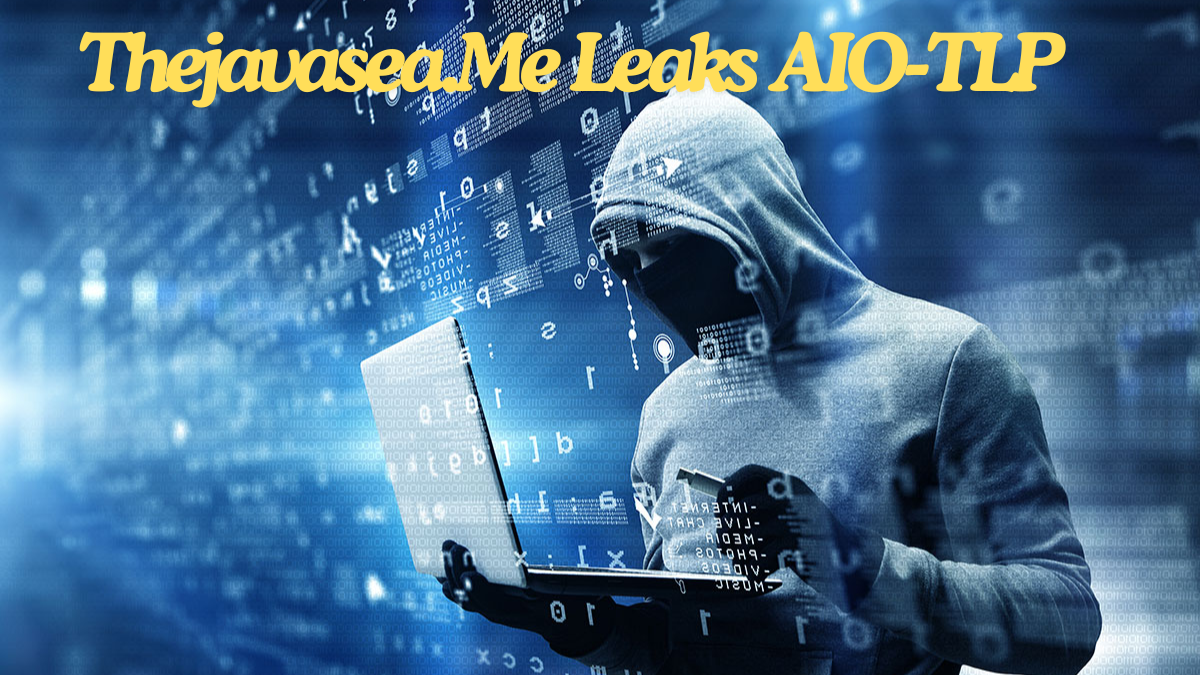Data leaks have become a common nightmare for individuals and businesses alike. The recent thejavasea.me leaks aio-tlp has sent shockwaves through the online community, raising alarms about data privacy and security. With personal information exposed, it’s crucial to understand how these breaches can impact you and what steps you can take to safeguard your sensitive data. Whether you’re a casual internet user or manage corporate assets, protecting yourself against such vulnerabilities is more thejavasea.me leaks aio-tlp important than ever. Let’s explore how to secure your data effectively in this digital age of threats.
Impact of Data Leaks
Data leaks can have catastrophic effects on individuals and organizations alike. When sensitive information is exposed, it creates a ripple effect that extends far beyond the initial breach.
For individuals, identity theft becomes a looming threat. Personal details falling into the wrong hands can lead to unauthorized transactions and significant financial loss. The emotional toll can be just as damaging, causing anxiety over privacy violations.
Organizations face severe repercussions too. A data leak often tarnishes reputations built over years of trust. Customers may hesitate to engage with brands perceived as careless about their security.
Moreover, regulatory fines and legal challenges can follow swiftly after a breach is discovered. Companies may find themselves investing heavily in damage control rather than innovation or growth initiatives.
The long-term ramifications are substantial, affecting not only current operations but future prospects as well. Data leaks remind us all of the critical importance of robust security measures in our digital landscape.
Steps to Secure Your Data
Securing your data requires a proactive approach. Start by assessing what information you collect and store. Identify sensitive data that needs extra protection.
Next, implement strong passwords across all accounts. Use a mix of letters, numbers, and symbols to create unique passwords for each platform. Consider using a password manager to keep everything organized.
Regular software updates are essential too. Patches often fix vulnerabilities that hackers exploit.
Invest in reliable antivirus software as an added layer of defense against malware threats. Schedule routine scans to ensure ongoing security.
Additionally, back up your data frequently. Store copies in both physical locations and cloud services to mitigate loss from unexpected events.
Monitor your accounts for unusual activity regularly. Early detection can help prevent significant breaches before they escalate into larger problems.
Importance of Password Management
Effective password management is crucial in today’s digital landscape. Weak passwords can act as an open door for cybercriminals. They thrive on easy access to personal and sensitive information.
Using unique, complex passwords for each account reduces the risk of breaches. A combination of letters, numbers, and symbols creates a strong defense against unauthorized access.
Password managers are invaluable tools that store and generate secure passwords. They help you keep track of your credentials without relying on memory alone.
Regularly updating your passwords adds another layer of protection. It minimizes the chance that old data leaks will affect your current accounts.
Two-factor authentication (2FA) further strengthens security by requiring additional verification steps. This extra layer makes it significantly harder for attackers to gain entry into your accounts even if they have your password.
Educating Employees on Cybersecurity
Educating employees on cybersecurity is crucial for any organization. The human element often poses the greatest risk to data security. A simple mistake, like clicking a malicious link, can lead to severe consequences.
Training sessions should be regular and engaging. Use real-world examples that highlight vulnerabilities. Interactive learning methods tend to resonate better than traditional lectures.
Encourage employees to ask questions and share their experiences. Building an open dialogue fosters a culture of awareness. When staff members feel involved, they are more likely to take the training seriously.
It’s also beneficial to offer resources for continuous learning. This could include newsletters, webinars, or access to online courses focused on emerging threats and best practices in cybersecurity.
Recognizing and rewarding proactive behavior reinforces positive habits within the team. Small incentives can motivate individuals to remain vigilant against cyber threats continually.
The Role of Encryption in Data Security
Encryption plays a vital role in safeguarding sensitive data. It transforms readable information into an unreadable format, ensuring that only authorized users can access it.
When data is encrypted, even if cybercriminals manage to intercept it, all they see is gibberish. This adds a significant layer of security against potential breaches.
Modern encryption techniques are more robust than ever. They employ complex algorithms that adapt over time to counter evolving threats.
Implementing encryption across various platforms—whether for emails, files, or databases—can greatly reduce the risk of unauthorized access.
Additionally, end-to-end encryption ensures that only the sender and intended recipient can read the transmitted messages. This level of privacy builds trust between organizations and their clients.
Investing in strong encryption methods not only protects critical data but also enhances compliance with regulations governing data protection.
Conclusion
The recent thejavasea.me leaks aio-tlp have underscored the urgent need for robust data security measures. As cyber threats become increasingly sophisticated, it’s crucial to take proactive steps to safeguard your sensitive information.
Implementing strong password management practices and utilizing encryption can significantly reduce vulnerability. Additionally, educating employees on cybersecurity best practices fosters a culture of awareness that is vital in combating potential breaches.
By prioritizing these strategies, individuals and organizations alike can create a more secure digital environment. Emphasizing vigilance and preparedness will not only thejavasea.me leaks aio-tlp protect your data but also build trust with clients and stakeholders in an era where data integrity is paramount.


